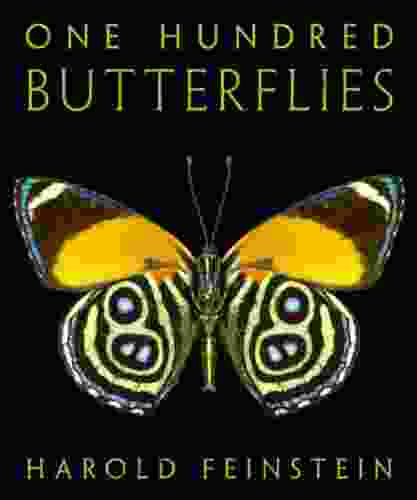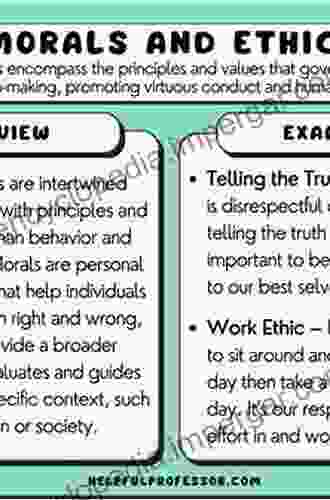What Does Moral Philosophy Know About Morality?

Morality is one of the most fundamental aspects of human life. It shapes our decisions, our actions, and our relationships with others. But what is morality, exactly? And how do we know what is right and wrong?
These are the questions that moral philosophy seeks to answer. Moral philosophy is the branch of philosophy that deals with the nature of morality and the different ways that philosophers have thought about it. It is a vast and complex field, but it is also one of the most important, as it can help us to understand ourselves and our place in the world.
The Nature of Morality
One of the first questions that moral philosophers ask is: what is the nature of morality? Is it objective or subjective? Is it based on reason or emotion? Is it universal or relative?
There are no easy answers to these questions, and philosophers have been debating them for centuries. However, there are a number of different theories about the nature of morality that have been proposed.
One popular theory is that morality is objective. This means that there are moral facts that are true or false regardless of what anyone believes or feels. For example, it is objectively wrong to murder an innocent person. This is not just a matter of opinion, but a fact that is true in all possible worlds.
Another popular theory is that morality is subjective. This means that there are no objective moral facts, and that what is right or wrong is simply a matter of personal opinion. For example, some people believe that it is wrong to eat meat, while others believe that it is perfectly acceptable. There is no objective way to determine who is right.
A third theory is that morality is based on reason. This means that we can use our reason to determine what is right and wrong. For example, we can use our reason to conclude that it is wrong to murder an innocent person because it is harmful and unjust.
A fourth theory is that morality is based on emotion. This means that our emotions play a role in determining what is right and wrong. For example, we may feel that it is wrong to murder an innocent person because it is cruel and inhumane.
The Different Ways that Philosophers Have Thought About Morality
There are many different ways that philosophers have thought about morality. Some philosophers have focused on the nature of moral judgments, while others have focused on the moral implications of our actions. Some philosophers have argued that morality is based on reason, while others have argued that it is based on emotion.
One of the most influential moral philosophers was Immanuel Kant. Kant argued that morality is based on reason, and that we can use our reason to determine what is right and wrong. He developed a number of different moral principles, including the categorical imperative, which states that we should always act in such a way that we could will our action to become a universal law.
Another influential moral philosopher was John Stuart Mill. Mill argued that morality is based on utility, and that the right action is the one that produces the greatest happiness for the greatest number of people. He developed a number of different utilitarianism principles, including the principle of maximizing happiness, which states that we should always act in such a way that we produce the greatest happiness for the greatest number of people.
Moral philosophy is a vast and complex field, but it is also one of the most important. It can help us to understand ourselves and our place in the world, and it can help us to make better moral decisions. If you are interested in learning more about moral philosophy, I encourage you to pick up a copy of this book. It is a comprehensive and accessible to the field, and it will provide you with a solid foundation for understanding the nature of morality.
Do you want to contribute by writing guest posts on this blog?
Please contact us and send us a resume of previous articles that you have written.
 Book
Book Novel
Novel Page
Page Chapter
Chapter Text
Text Story
Story Genre
Genre Reader
Reader Library
Library Paperback
Paperback E-book
E-book Magazine
Magazine Newspaper
Newspaper Paragraph
Paragraph Sentence
Sentence Bookmark
Bookmark Shelf
Shelf Glossary
Glossary Bibliography
Bibliography Foreword
Foreword Preface
Preface Synopsis
Synopsis Annotation
Annotation Footnote
Footnote Manuscript
Manuscript Scroll
Scroll Codex
Codex Tome
Tome Bestseller
Bestseller Classics
Classics Library card
Library card Narrative
Narrative Biography
Biography Autobiography
Autobiography Memoir
Memoir Reference
Reference Encyclopedia
Encyclopedia Gorick Ng
Gorick Ng Edmund D Pellegrino
Edmund D Pellegrino Flavios Papasakellariou
Flavios Papasakellariou Richard Lawson
Richard Lawson R Halmshaw
R Halmshaw Warren Dean
Warren Dean Barbara Mccaskill
Barbara Mccaskill Water Environment Federation
Water Environment Federation Kristin Lee
Kristin Lee Linda S Locke
Linda S Locke Peggy R Hoyt
Peggy R Hoyt Michael Nelson
Michael Nelson Zee Monodee
Zee Monodee Emily Design
Emily Design Sherry F Colb
Sherry F Colb Sloane Ketcham
Sloane Ketcham Housetsu Sato
Housetsu Sato Alexander Orwin
Alexander Orwin Fanny Zanotti
Fanny Zanotti Johann Wolfgang Von Goethe
Johann Wolfgang Von Goethe
Light bulbAdvertise smarter! Our strategic ad space ensures maximum exposure. Reserve your spot today!

 Fabian MitchellWhy the United States Must Come to Terms with the Islamic Republic of Iran
Fabian MitchellWhy the United States Must Come to Terms with the Islamic Republic of Iran
 Samuel Taylor ColeridgePaleo All-in-One For Dummies: The Complete Guide to the Paleo Diet
Samuel Taylor ColeridgePaleo All-in-One For Dummies: The Complete Guide to the Paleo Diet
 Ethan MitchellUnlock the Secrets of Human Anatomy and Physiology with the Ultimate Study...
Ethan MitchellUnlock the Secrets of Human Anatomy and Physiology with the Ultimate Study...
 Milton BellUnveiling the Delicate Beauty of Butterflies: A Review of Harold Feinstein's...
Milton BellUnveiling the Delicate Beauty of Butterflies: A Review of Harold Feinstein's... Shannon SimmonsFollow ·10.5k
Shannon SimmonsFollow ·10.5k Jackson BlairFollow ·18.9k
Jackson BlairFollow ·18.9k Guillermo BlairFollow ·16.5k
Guillermo BlairFollow ·16.5k David MitchellFollow ·4.8k
David MitchellFollow ·4.8k Dustin RichardsonFollow ·11.9k
Dustin RichardsonFollow ·11.9k Miguel de CervantesFollow ·8k
Miguel de CervantesFollow ·8k VoltaireFollow ·15.4k
VoltaireFollow ·15.4k Joseph ConradFollow ·2.8k
Joseph ConradFollow ·2.8k

 Terence Nelson
Terence NelsonSocial Dynamics in Systems Perspective: New Economic...
The world we live in is a complex and...

 Deacon Bell
Deacon BellUnlock the Secrets of Treasury Process Internal Controls:...
In today's competitive business...

 Finn Cox
Finn CoxThe Path Ahead: Green Energy and Technology
Embark on the...

 Rob Foster
Rob FosterThermodynamics of Surfaces and Capillary Systems: A...
Surfaces and...

 Nathan Reed
Nathan ReedUnlock the Secrets to Writing Remarkable Business School...
Embarking on the journey to business...

 David Foster Wallace
David Foster WallacePrinciples and Applications, Second Edition: Your Gateway...
In the ever-evolving realm of...




